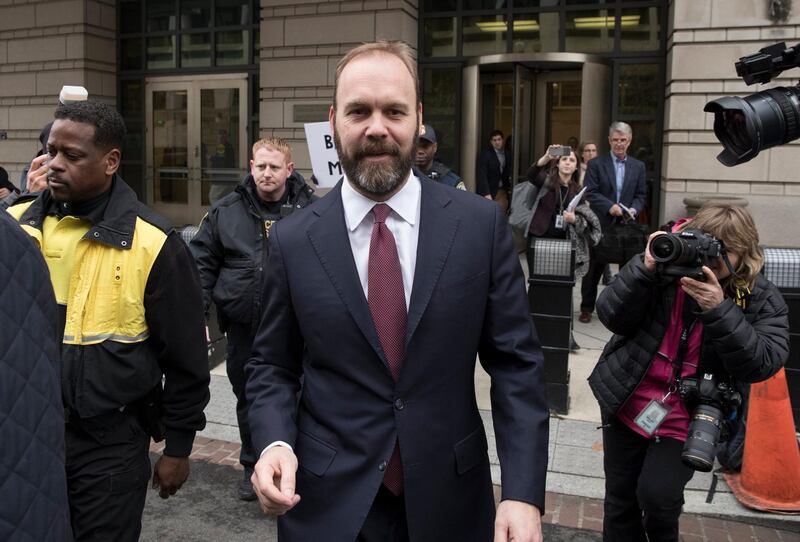A series of witnesses described how Paul Manafort, Donald Trump’s former campaign chief, paid for luxury cars, expensive suits and home renovations with wire transfers, during the second day of his trial for financial fraud.
Mr Manafort is the first person to be tried on evidence collected during special counsel Robert Mueller’s investigation into Russia’s role in the 2016 United States presidential election.
He denies all the charges, which relate to work done before he joined the campaign.
Prosecutors spent the day revealing more details of the 69-year-old political consultant’s high-rolling lifestyle – as they attempt to prove he was a tax cheat who hid money in offshore accounts and lied to borrow millions more – attracting frequent rebukes from an impatient judge.
It's not a crime to be wealthy, District Judge TS Ellis III reminded government lawyers. He chastised them for using the pejorative term “oligarchs” to describe wealthy Ukrainian figures who paid Mr Manafort millions of dollars in political consultancy fees.
He also barred them from showing photographs of Mr Manafort’s suits to the jury.
“I understand this effort to show that he lived lavishly, but at some point it's not relevant,” he said.
That did not stop the prosecution from calling witnesses who described Mr Manafort’s spending in an effort to show that he was operating foreign accounts.
Daniel Opsut testified that the Manafort family bought and leased expensive cars from his dealership, using funds from accounts in Cyprus.
They included a new 2013 Mercedes-Benz SL550 worth about $123,000 (Dh451,810).
Stephen Jacobson described contracts for construction projects in New York City and in the millionaires' retreat of the Hamptons. Millions of dollars in payments, he testified, were paid mainly by international wire transfer.
_______________
Read more:
[ Manafort's lavish spending in spotlight as Trump throws shade on trial ]
[ Prosecutors tell jury ex-Trump campaign chief Paul Manafort hid wealth ]
[ Michael Cohen says US president knew about Trump Tower meeting with Russians ]
_______________
“It's literally hundreds and hundreds of pages of billing over the course of the years I've worked for Mr Manafort,” he said.
And Maximillian Katzman said the defendant spent more than $900,000 on clothes at his boutique in New York. He was the only client who paid his bills by international wire transfer, he said.
As Greg Andres, for the prosecution, reviewed how much Mr Manafort spent on clothing, including $440,160 in 2013 alone, a weary judge intervened again.
Mr Ellis said: “The government doesn’t want to prosecute someone because they wear nice clothing, do they?”
The prosecution laid out its strategy in an opening statement a day earlier. Government lawyers claim Mr Manafort operated a complex web of overseas companies and bank accounts to hide his income derived from Ukrainian politicians and to avoid paying tax in the US.
His lawyers argue that Mr Manafort was oblivious to the arrangements. Instead, his former assistant Rick Gates was to blame, they said.
Mr Gates, who pleaded guilty to making false statements after being indicted by Mr Mueller, was expected to be a star government witness.
However, prosecutors said on Wednesday they had not yet decided whether or not he would be called.
“He may testify in this case, he may not,” said Uzo Asonye, for the government.
His appearance could provide the defining moments of the trial, as key figures in the Trump campaign square off against each other in court.
However, legal analysts played down the significance of Mr Asonye’s caution. They said it was common practice for prosecutors not to reveal their witness list in advance for fear that any changes or shifts in tactics could be read as weakness by the jury.
Meanwhile, US president Trump kept up a commentary throughout the day, at times distancing himself from his former campaign chairman and at other times railing against the injustice of the trial.






